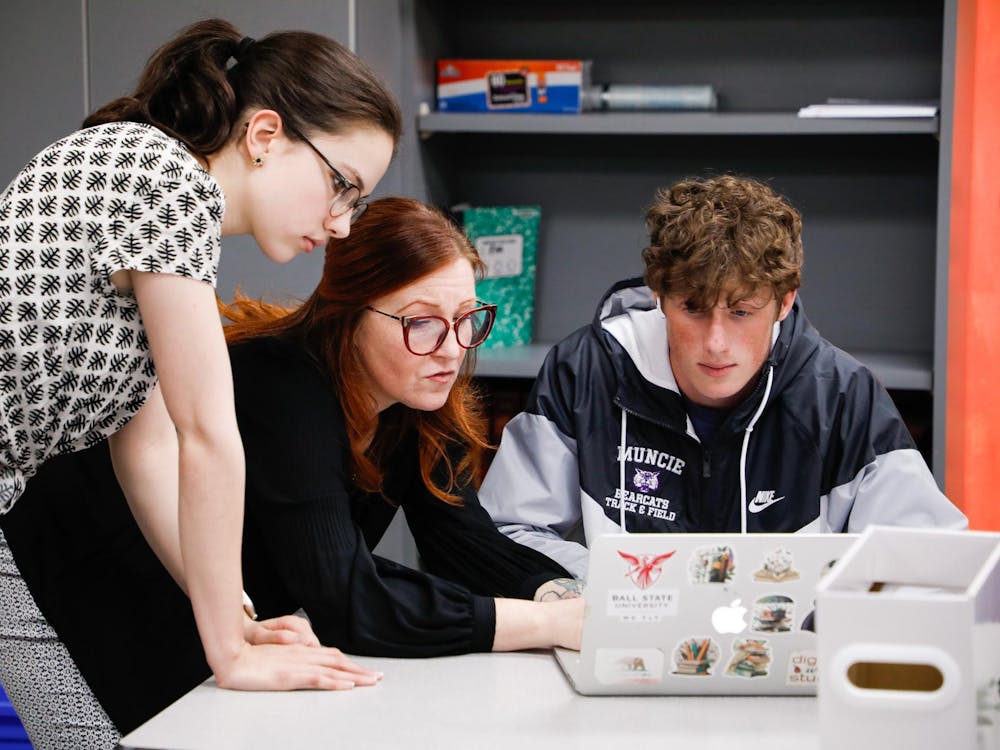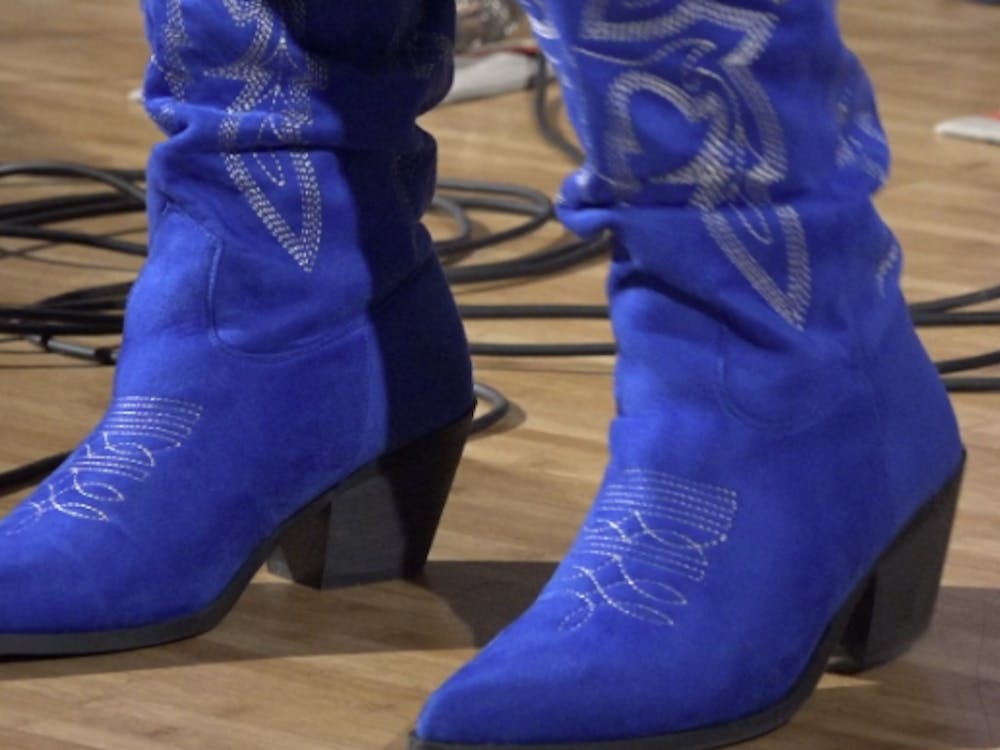Six years ago, Ball State became a victim of fraud cases that totaled more than $13 million. As the university moves forward, officials say it is focused on recovering the money, finding justice and creating new checks and balances.
“Any loss of funds is an outrage,” Randy Howard, vice president for business affairs and treasurer, told the Daily News in June. “It upsets the [Board of Trustees], it upsets the administration. We wish it had never happened, but we were victims of a crime.”
The loss came from a collection of long-term reserves, such as health care and renovations for housing and dining. To prevent short-term damage, the university has contingency funds to cover the $13.165 million. Howard said the fraud doesn’t affect operations short term or “affect payroll tomorrow.”
However, the university will still need to replenish the reserves over a long period of time.
“And that’s the good news — we have a lot of time to recoup them,” Howard said.
UNCOVERING FRAUD
In September 2011, the U.S. Attorneys’ Office contacted Ball State, telling the university that it might be a victim of fraud. This prompted an internal investigation, which found two potential cases after Ball State asked Gale Prizevoits, former director of cash and investments, to provide documents.
“She signed contracts that the university didn’t even know existed,” Howard said in June. “... A prudent and reasonable investor would not have signed them, particularly if they knew our investment policy.”
Tom Taylor, vice president for enrollment, marketing and communications, said those contracts “were nowhere in our files.”
After the investigation, Ball State turned over the findings to the U.S. Attorneys’ Office. The office had asked the university to not publicly disclose the information because of the investigation at the time. This summer, parts of the cases were allowed to go public.
“We’re happy we can talk about it,” Howard said.
PRIZEVOITS
Prizevoits was terminated Oct. 24, 2011, from her job after the university found she had made investments that violated the university’s policy. The contracts broke policy in part because they were “highly speculative trades resulting in a likely loss of significant long-term investment funds,” according to the factual basis for her termination.
Her pay as of Sept. 1, 2011, was $84,437.
She had attempted to conceal the transactions from the university by altering records after issuing them and mischaracterizing them, Howard said. Her investments do not show up in the audit reports.
“It was a fraud, so at the end of the day, there may have been really no real investment,” Howard said. “But even if there was, the types of investments these contracts bill out are highly speculative, promising returns that no reasonable investor would have believed.”
$5 MILLION FRAUD
Howard said the case that the U.S. Attorneys’ Office noticed involved a $5 million contract that Prizevoits made with Blackhawk Wealth Solutions Inc., a California corporation.
On April 27, 2010, Prizevoits signed a contract with Blackhawk, represented by company President Peter R. Sollenne.
This putative contract states that Blackhawk would contact Sterling Capital LP for unrestricted U.S. government Treasury STRIPS. The university and Blackhawk would enter into a joint venture for buying these T-STRIPS, with Ball State receiving 25 percent of the net profits.
However, some of that money — $3 million — found its way to George Montolio of Sheridan Capitals LLC, a separate company in New York. This company was to purchase T-STRIPS for Blackhawk and another investment company after receiving $3.8 million. Sheridan Capitals LLC never provided the T-STRIPS.
Montolio, 46, was in possession of a bank account that included the university’s $3 million, according to the federal complaint. The balance on that account was zero at the end of the period in October 2010, according to records obtained by criminal investigator Scott F. Romonowski.
On Sept. 23, 2011, Montolio was arrested on a charge of wire fraud.
In order to repay the millions, court documents state he agreed Nov. 11, 2011, to the forfeiture of items purchased from his crime — four separate Morris Avenue properties in Bronx, N.Y., a 2010 Chevrolet Camaro, an authentic baseball jersey signed by Mickey Mantle and an authentic pair of boxing gloves signed by Mike Tyson.
A Southern District of New York judge sentenced him March 7, 2013, to three years in prison.
$8.165 MILLION FRAUD
The university found more putative contracts made by Prizevoits, this time culminating in $8.165 million with Seth Beoku Betts, 38, of the former Betts and Gambles.
In 2008, the Florida man approached Ball State and told Prizevoits that he would use the university’s money on its behalf to buy collateralized mortgage obligations then sell them to other buyers for profit, according to the FBI.
Prizevoits issued three contracts with Betts, dated in 2008 for July 3, July 24 and Dec. 9.
However, Betts never returned money to the university. Instead, he made purchases to benefit himself.
On Dec. 10, 2008, just a day after signing the third contract, Betts purchased a Ferrari and a Maserati for $325,000 of the university’s money. A week later, he put $1,545,000 in an attorney trust account toward buying a home in Boynton Beach, Fla. He received the warranty deed Jan. 22, 2009, for the 4,662-square-foot house.
“Worse than misrepresenting how he would invest the university’s money, Betts made few investments at all — other than in luxury goods for himself,” George Venizelos, FBI assistant director in charge, said in a statement in 2013. “You can’t take someone’s money to invest in mortgages and spend it on Maseratis.”
The FBI report said he spent at least $455,000 more on himself — $150,000 of that going toward car payments.
Over the summer, on June 5, a U.S. District judge sentenced him to four years and three months in prison for defrauding Ball State.
Betts was ordered to pay $8.165 million in restitution, as well. As part of that, his Boynton Beach, Fla., house sold Dec. 11, 2013, for $1,050,000, according to a listing by Karen Kennedy of Lang Realty.
CHECKS AND BALANCES
As one of the university’s priorities, Howard said, Ball State has implemented new checks and balances to avoid this situation in the future.
This includes a list of pre-approved brokers that is annually reviewed. This list goes through independent sources to find any charges or allegations of SEC fines, Howard said.
Rick Hall, trustees chairman, announced that he would hire Deborah Daniels in early July on behalf of the university to “bring in someone with fresh eyes” to look at the fraud cases, Taylor said.
Daniels — a former U.S. attorney and U.S. assistant attorney general as well as former Gov. Mitch Daniels’ sister — is currently at the Indianapolis office of Krieg DeVault.
She will review the case and look for changes that can be made to strengthen internal controls and prevent any kinds of fraud in the future.
“There are no absolute safeguards, but there are best practices,” Taylor said. “The external folks the board will bring in will really [see if] those are the best approaches.”
He said the new review will look through the university’s past investments, to double-check what he is confident was a thorough first internal review.
“We’re still hopeful they’re going to find more bad people to bring to justice,” Taylor said. “We’re still hopeful that they may discover other assets that could be recovered.”
The following timeline shows information on the ongoing cases of the last six years.
July 3, July 24 and Dec. 9, 2008: Prizevoits signs three contracts — $2.5 million, $3.165 million and $2.5 million — with Seth Beoku Betts of Betts and Gambles to buy collateralized mortgage obligations.
Dec. 10, 2008: Betts buys himself a Ferrari and a Maserati for $325,000 with the university’s money.
Jan. 22, 2009: Betts buys a 4,662-square-foot house in Boynton Beach, Fla., putting $1,545,000 of the university’s money away to do so. He goes on to use $455,000 on himself.
April 27, 2010: Prizevoits signs a contract for $5 million with Blackhawk Wealth Solutions Inc. President Peter R. Sollenne to buy unrestricted U.S. government Treasury STRIPS, with the university getting 25 percent of the net profits.
June 29, 2010: Blackhawk sends a letter to Prizevoits, saying it had sent $3 million to Montolio’s company in May, but that it was working to secure a return of that money.
Aug. 25 to Oct. 29, 2010: Criminal investigator Scott F. Romonowski reviews records of this time period of Sheridan Capitals’ bank account, controlled by Montolio. He finds that account balance to be zero, though the time period once held $3 million of university’s money.
September 2010: Prizevoits contacts Montolio by phone, receiving the number from Blackhawk, and asks his company to confirm it held the university’s $3 million. Montolio agrees, sending a confirmation form by fax Sept. 22, 2010.
September 2011: The U.S. Attorneys’ Office tells Ball State that it might be a victim of fraud, prompting an internal investigation that uncovers two potential cases. The university hands over that information to the office.
Sept. 23, 2011: Montolio is arrested on a charge of wire fraud.
Oct. 24, 2011: Prizevoits is terminated following the internal investigation that found she made a series of investments that broke university policy.
Nov. 7, 2011: To repay those he defrauded, including the university, Montolio consents to the forfeiture of items he purchased with that money — four separate Morris Avenue properties in Bronx, N.Y., a 2010 Chevrolet Camaro, an authentic baseball jersey signed by Mickey Mantle and an authentic pair of boxing gloves signed by Mike Tyson.
March 7, 2013: A Southern District of New York judge sentences Montolio to three years in prison.
June 20, 2013: Betts is arrested on a charge of wire fraud for operating a scheme to defraud the university.
Dec. 11, 2013: Betts’ Boynton Beach, Fla., house sells for $1,050,000 as part of restitution to the university.
June 5, 2014: A U.S. District judge sentences Betts to four years and three months in prison for defrauding Ball State.
July 10, 2014: Rick Hall, chair of the Board of Trustees, announces he will hire Deborah Daniels — a former U.S. attorney and U.S. assistant attorney general and former Gov. Mitch Daniels’ sister — to look at the fraud cases and suggest changes to internal controls.
SOURCES: University documents provided to the Daily News and through public records requests, the FBI and federal complaints from the Southern District of New York





